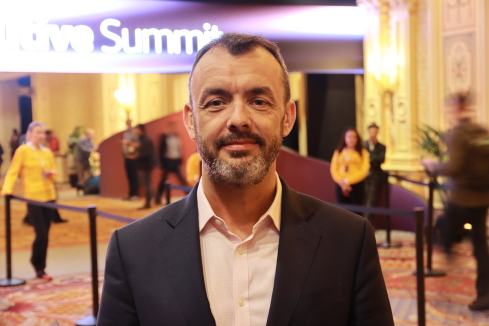
Expert from Accenture sees the cloud as the gateway for enterprises to access more innovation this year.
The next great leaps in compute could have their foundation in the cloud, if predictions from Accenture prove out.
At last month’s Amazon re:Invent conference, Tristan Morel L’Horset, the North America intelligent cloud and infrastructure growth lead for Accenture Technology Services, laid out some of his expectations for innovation that may take off during 2020. Many organizations may be focusing on transformation, but here’s a question about the time that comes after such change. “Once you have gone to the cloud, how do you get the best out of it?” L’Horset asked.
The cloud could be the bridge to a bevy of other innovations, he said. For instance, the evolution of artificial intelligence might accelerate thanks to resources brought together via the cloud. “For AI to really explode, you need data — massive amounts to be exploited, managed, and analyzed,” he said. Enterprises have come to understand they hold troves of such data, L’Horset said, and need to do something with it. There is an opportunity being realized, he said, where AI is put to work with consolidated and centralized data in the cloud. “We see tremendous investments from cloud providers on capabilities of AI to exploit that data.”
The benefits of such investments can be seen through the contextualization of data, L’Horset said, where AI engines solve multiple problems by using the same information in different ways. “You take this at the enterprise-level and you’re going to see an explosion of the AI in the market as a rapid trend. This is a 2020 trend we’re going to see.”
There is another breakthrough in compute expected to accelerate because of efforts by hyperscalers such as AWS and Google. Quantum computing is on the cusp of being realized, L’Horset said, after years of being viewed as a sort of science project. The idea is to apply quantum mechanics in the development of machines capable of exponentially faster computations than traditional models. Creating such computers has remained elusive until recent times. “A lot of companies have wondered how they would actually use it,” he said. “It is incredibly expensive to build and operate.”
Now quantum computing is becoming available, though on a limited basis. In October, Google announced a quantum computer outfitted with the Sycamore processer completed a test computation in 200 seconds that allegedly could have taken the fastest supercomputer in the world 10,000 years to match.
More hands-on experimentation with quantum computing may soon come to enterprises. The December announcement about Amazon Braket at AWS re:Invent was pivotal, L’Horset said, because it made quantum computing available for developers, researchers, and organizations. “We don’t know what problems quantum will solve because quantum will solve problems we haven’t thought of yet.”
Some of the first applications for quantum computing might be seen in life sciences or financial services industries, L’Horset said, with other use cases to follow. He believes it could take 18 to 36 months for enterprises to truly get their arms around quantum computing. The cycle will likely include making SDKs available, identifying problems to be solved, and then translating those problems into something that can be leveraged by quantum capabilities, he said. “That will take time,” he said. “Before [the announcement], I don’t think there were any real investments in it from clients directly.”
The path of innovation being taken by technology providers and hyperscalers such as AWS shows they want to provide multiple services to enterprises, L’Horset said, and not just cloud business. Additional benefits from this trend should surface along the way. “Over time, this will eliminate technical debt,” he said, referring to mainframes and other legacy resources. He foresees environments becoming scalable and consumption-based with data waiting to be maximized. “That is the new frontier. The next question is how will clients exploit all of that data? Do you have the right tools?”
Want to learn more about what experts expect in 2020? Check out these recent articles.
9 Ways to Improve IT and Operational Efficiencies in 2020
8 Impactful Enterprise Technologies for 2020
The ‘Not This Year’ Tech Trends for 2020
What’s Next: AI and Data Trends for 2020 and Beyond
Tech We Can’t Live Without, Growing Pains and 2020 Insights
Joao-Pierre S. Ruth has spent his career immersed in business and technology journalism first covering local industries in New Jersey, later as the New York editor for Xconomy delving into the city’s tech startup community, and then as a freelancer for such outlets as … View Full Bio
More Insights

Leave a Reply